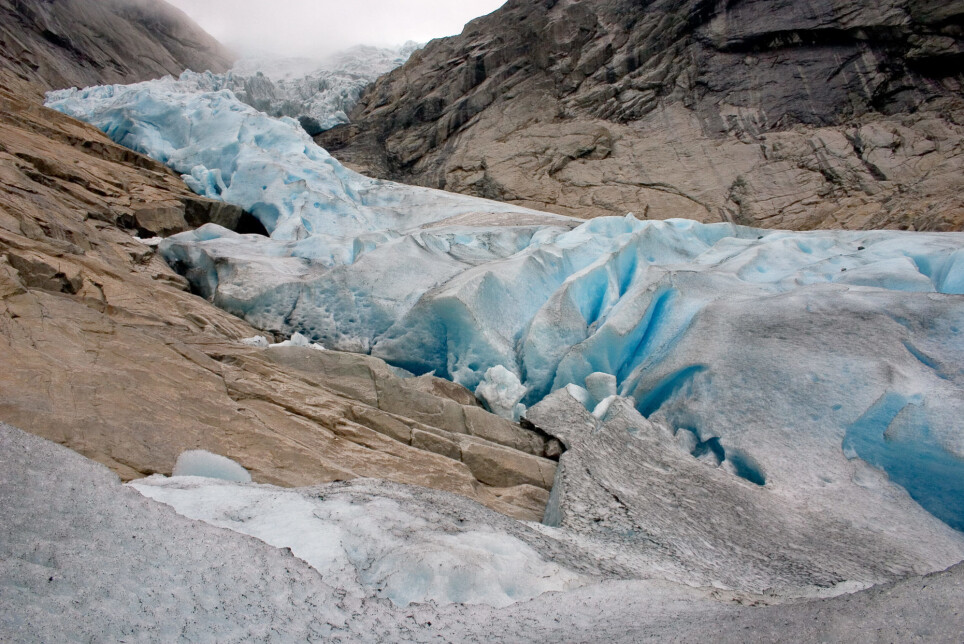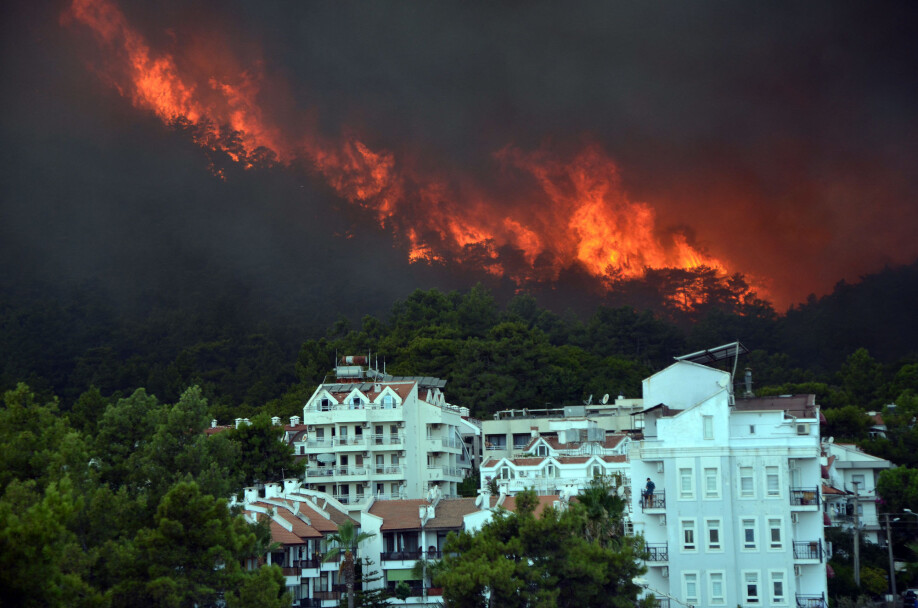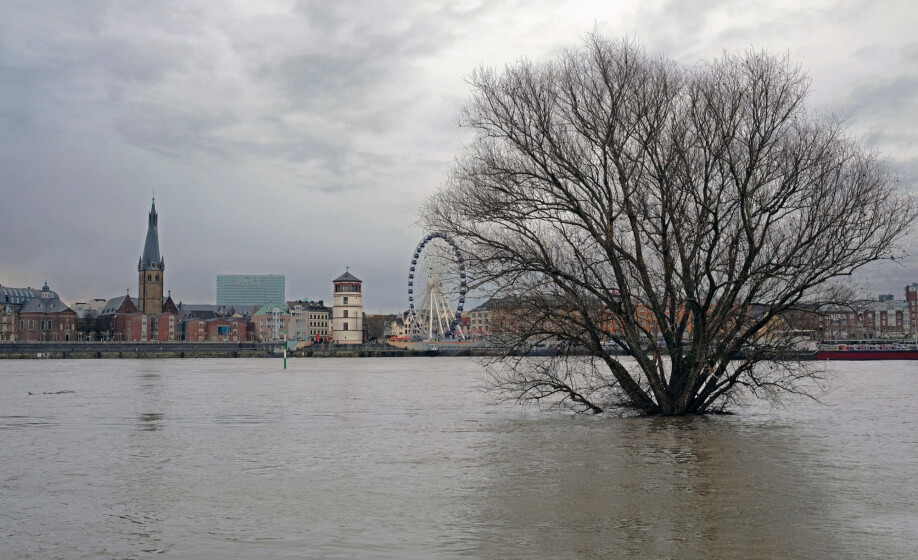THIS ARTICLE/PRESS RELEASE IS PAID FOR AND PRESENTED BY NTNU Norwegian University of Science and Technology - read more

Rapid action can help prevent the worst consequences of global warming
A new report from the Intergovernmental Panel on Climate Change (IPCC) describes with unnerving detail just what can happen if nations fail to limit greenhouse gas emissions. But rapid international action will keep the worst consequences at bay, the panel said.
Wildfires in western North America, southern Europe, and Siberia and massive flooding in central Europe and China are just some of the examples of the extremes the world will increasingly experience if countries fail to act to curb global warming, an expert panel on climate change said Monday.
“The report clearly shows that we are living the consequences of climate changes everywhere,” said Carolina Vera, vice chair of the IPCC’s WP 1 report, in a press conference that was streamed live on Monday to launch the report. Vera is Director of the Argentinean-French Institute for Climate Studies and its Science in Argentina.
The report looks at the physical science that provides the foundation for understanding past, present and future climate change. Among its many findings are that humans have already warmed the planet by 1.1 C and that under all of the possible scenarios the panel examined, the planet’s average temperature will climb to 1.5 C within the next two decades.
As temperatures continue to rise, humankind will see more temperature and weather extremes such as deadly heat waves, more extreme floods and droughts. Previous reports have said that keeping average global warming to 1.5 C or less will help the planet avoid the worst consequences of climate change. But that will take immediate action, said Helene Muri, senior researcher at NTNU’s Industrial Ecology Programme, who contributed to the report.
“Reaching 1.5C would require rapid reductions in emissions over the next ten years and getting to net zero emissions around 2050,” Muri said.
Clear language delivers a clear message
Edgar Hertwich, International Chair in Industrial Ecology at NTNU and professor at the Department of Energy and Process Engineering welcomed the clear language in the report, in which the IPCC said that it was unequivocal that humankind was responsible for the warming.
“The language of caution, uncertainty, and probability that the IPCC has used in the past may have contributed to society not fully comprehending the gravity and idiocy of the experiment we are undertaking with our planet by burning fossil fuels. Today, uncertainties have become certainties and our folly is in clear sight,” he said.
“The IPCC has said in previous years that it was likely that extreme heat, flooding, and drought would occur more frequently and the intensity of extreme events would increase. Today’s evidence shows that this is indeed happening,” he said.

Hope for the future
During the press conference, the IPCC researchers continued to underscore the fact that humankind can still forestall the worst consequences of climate change with rapid cuts in both carbon dioxide and methane, a greenhouse gas that is far more powerful than CO2.
“We can avoid further levels of warming, that is an important message of the report,” said Valérie Masson-Delmotte, a climate scientist at University of Paris-Saclay and a co-chair of the group that produced the report. “The climate we experience in the future is dependent on actions we take now.”
Masson-Delmotte added, however, that there’s no doubt that every increment of warming will exacerbate the world’s woes.
“The warmer it gets the worse it will get,” she said.
Muri noted that current national pledges made for the Paris Agreement mean that the world may reach the 1.5C limit in the next decade.
“Climate change is basically happening around us right now. It stresses the urgency of caring and acting. If we do that, it is not too late to reach 1.5C,” she said. However, she said, “if we stick to the current national pledges to the Paris Agreement, we may reach 1.5C in about 10 years.”
“Climate science has furnished us with the methods to ascertain that increases in greenhouse gases were the cause of the increased frequency of extreme events,” Hertwich added. “Further increases are in store. There are, however, dramatic differences in the future frequency and severity of extreme events dependent on how fast we are able to bring down emissions.”

From life-cycle assessments to the green energy transition
As Norway’s main science and technology university, NTNU researchers are very involved in different aspects of climate change related research, says Johan Hustad, head of the university’s strategic research area on Energy. Roughly 600 of the university’s researchers are involved in some aspect of energy research.
“NTNU is helping to increase the knowledge base for the fight against climate change and conducts a great deal of relevant research that is helping to support the work of the IPCC,” he said.
In addition to the Industrial Ecology Programme, NTNU researchers work on hydrogen and battery technology, on- and offshore wind power, CCUS (carbon capture, utilisation and storage), low- and middle-income countries, society, smartgrids and solar energy. NTNU has also pioneered research on hydroelectric power.
The university also hosts three Research Centres for Environment-friendly Energy Research: Hydrocen on hydropower, NTRANS on the role of the energy system in the transition to a zero-emission society, and ZEN on zero emission neighbourhoods in smart cities.
“We work with research and technology development in almost all disciplines within emissions reduction: environmentally friendly energy, batteries, carbon capture and storage, offshore wind, hydrogen, while we conduct research-based education in these areas.” Hustad said. “In addition, NTNU works with research and education on the societal aspects of the energy transition where technology, economics and social sciences are linked.”

Call for politicians to act
The release of the IPCC report has special significance in Norway, as national elections approach in September.
“This report is effectively an unequivocal call for action to mitigate climate change. It has thoroughly documented that climate change is here and the perilous consequences facing us and future generations if we do not take action,” said Anders Hammer Strømman, a professor in the Industrial Ecology Program who is also also a lead author on an upcoming IPCC report on Mitigation of Climate Change, due to be released in March next year.
“The unprecedented retreat of glaciers, the reduction in Arctic sea ice, the surface melting of the Greenland ice sheet and the decreased duration of the snow cover in the northern hemisphere should truly be a wake up call for the population of a polar nation like Norway and hopefully enable us to fully embrace the transition away from our society’s fossil dependency.”
See more content from NTNU:
-
Why is nothing being done about the destruction of nature?“We hand over the data, but then it stops there"
-
Researchers now know more about why quick clay is so unstable
-
Many mothers do not show up for postnatal check-ups
-
This woman's grave from the Viking Age excites archaeologists
-
The EU recommended a new method for making smoked salmon. But what did Norwegians think about this?
-
Ragnhild is the first to receive new cancer treatment: "I hope I can live a little longer"





































